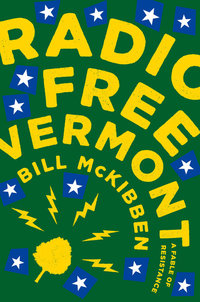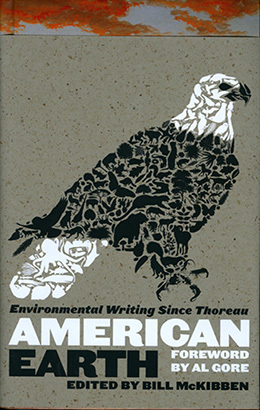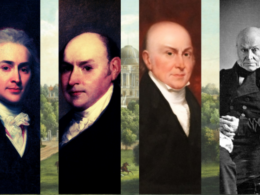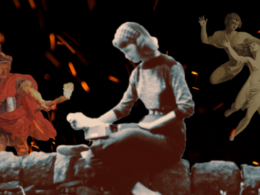Out this week from Blue Rider Press, Radio Free Vermont is the debut novel from activist and author Bill McKibben, who may be best known to Library of America readers as the editor of our anthology American Earth: Environmental Writing Since Thoreau.
In an interview he gave Library of America for American Earth back in 2008, McKibben avowed: “I think movements need more than earnestness; they need fun, music, creativity, art, sass.” Radio Free Vermont brings that idea to dramatic life in a comic romp about a band of Vermont renegades who decide the time has come for the Green Mountain State to form its own republic. The emphatically nonviolent rebels stage a series of disruptive pranks aimed at corporatism, the more-is-more consumer mentality, and a government with unmistakably authoritarian tendencies. Uniquely well timed for our current moment, the novel suggests that civic duty at a time of crisis is entirely reconcilable with a sense of fun.
McKibben talked about the novel with Library of America from his home in (of course) Vermont.
LOA: As the editor of American Earth, you’ve already surveyed the many different modes and moods of environmental writing. Was that good training for writing Radio Free Vermont? Do you see the novel as an extension—in a different key—of your work as an activist?
McKibben: I suppose at some level most things I do have an activist tilt—in this case, it’s not advocating for secession, but showing how creative resistance can get. The palette of options goes beyond holding marches and waving signs, important as those things are. But, more importantly, activists need to laugh a good deal more than they usually do, and so perhaps this is a small service in that direction.
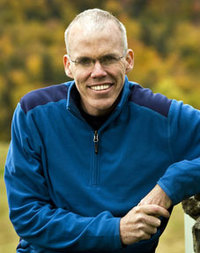
LOA: Speaking of laughs, environmental advocacy is a serious business and activists aren’t generally distinguished by their humor. Did you find writing a comic novel on these themes liberating? Are there comic writers you look to for inspiration?
McKibben: I don’t tend to like “comic writers,” but I love writers who are funny as part of what they do, often in a subtle way. E. B. White, for instance, or Ian Frazier, who may be my single favorite writer at work today. Especially in the deeply unhumorous time of Trump (whose occasional attempts at humor are invariably cruel) it seemed like a good moment for it.
LOA: Kirkus Reviews suggests that Radio Free Vermont reads like a “lost sequel” to Edward Abbey’s classic 1975 novel The Monkey Wrench Gang. Was Abbey’s book a conscious exemplar or influence?
McKibben: Sure. I liked Ed enormously, and while his classic is Desert Solitaire—a book we will someday read like Walden—The Monkey Wrench Gang was a great favorite of mine because it was both very serious and very very funny. I got to know him a little bit, and to hike around the desert with him some, and he was much less curmudgeonly than he pretended. The reviews that have mentioned that book have made my day.
LOA: The tension between localism and globalism—or, in the language of political economy, between autarky and interdependence—is as old as the republic. Did playing out the idea of secession in Radio Free Vermont allow you to think about issues of sustainability and growth in new ways?
McKibben: It helped remind me that scale is a variable we too often overlook. I have a feeling it may be really crucial—small versus big is probably as important as the ideologies we usually define controversies by.
LOA: Given our nation’s troubled history with secession, were you apprehensive about using it as the springboard for your story?
McKibben: Sure, and especially in lily-white Vermont—which actually had a small secession boomlet ten years ago, which played out precisely because its leaders tried to make common cause with the rancid secessionists of the American South still living in the days of the Civil War. I hope the book makes clear my feeling about all of that.
LOA: About one specific topic you seem to have done prodigious research in order to write this book. We speak, of course, about Vermont micro-brews. Is there one in particular you want to recommend?
McKibben: One is very hard. In fact, the best thing about local beer is—it’s local. There’s pretty much a brewery in every town of any size in Vermont, so search out the very freshest. It’s like bread, it tastes better the closer to home you can find it!
